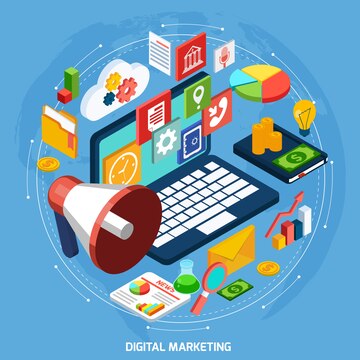Role Of Social Media In Our Life..
What Is Social Media?
Social media refers to online platforms and websites that enable users to create, share, and exchange content with others. These platforms facilitate real-time communication, allowing individuals and businesses to connect, engage, and interact with a global audience. Here are key aspects of social media:
1. Types of Social Media Platforms:
· Social Networking Sites: Facebook, LinkedIn, and Twitter.
· Media Sharing Networks: Instagram, Snapchat, and YouTube.
· Microblogging Platforms: Twitter and Tumblr.
· Discussion Forums: Reddit and Quora.
· Social Bookmarking: Pinterest and Flipboard.
2. Key Features:
· User Profiles: Individuals and businesses create profiles to share information and connect with others.
· Content Sharing: Users post text, images, videos, and links to share with their network.
· Interactivity: Social media allows users to like, comment, share, and engage with content.
· Real-Time Updates: Content is often shared and updated in real time.
3. Business Applications:
· Marketing and Promotion: Businesses use social media to promote products, services, and events.
· Customer Engagement: Social platforms provide a direct channel for businesses to interact with customers, answer queries, and address concerns.
· Brand Building: Social media helps build brand awareness, loyalty, and credibility.
· Advertising: Paid advertising options on platforms like Facebook and Instagram enable targeted marketing.
4. Impact on Communication:
· Instant Communication: Social media allows instant communication and sharing of information.
· Global Reach: Users can connect with people worldwide, breaking down geographical barriers.
· Viral Content: Content has the potential to go viral, reaching a massive audience quickly.
5. Challenges and Concerns:
· Privacy Issues: Concerns about data privacy and the misuse of personal information.
· Cyberbullying: Negative interactions and harassment on social platforms.
· Fake News: The spread of misinformation and fake news.
· Addiction: Excessive use leading to social media addiction.
6. Trends and Innovations:
· Live Video: Real-time video streaming for events, tutorials, and Q&A sessions.
· Stories Feature: Temporary content that disappears after 24 hours.
· Augmented Reality (AR): Integration of AR for filters, effects, and interactive experiences.
· Ephemeral Content: Short-lived content designed to capture attention quickly.
7. Social Media and Society:
· Influencer Culture: Individuals with large followings influencing trends and consumer behavior.
· Activism and Awareness: Social media as a catalyst for social and political movements.
· Community Building: Platforms facilitate the formation of online communities based on shared interests.
Social media plays a pivotal role in modern communication, influencing how individuals, businesses, and societies connect, share information, and engage with one another. As it continues to evolve, social media remains a dynamic and influential force in the digital landscape.
What Is The Role Of Social Media?
The role of social media is multifaceted and extends across various aspects of personal, professional, and societal interactions. Here are key roles and contributions of social media:
1. Communication and Connectivity:
· Personal Connections: Facilitates communication and connection with friends, family, and acquaintances, regardless of geographical distances.
· Global Reach: Enables users to connect with people worldwide, fostering cross-cultural interactions.
2. Information Sharing and Discovery:
· Content Sharing: Allows users to share text, images, videos, and links, contributing to a vast pool of shared information.
· News and Updates: Serves as a platform for real-time news dissemination and updates on various topics.
3. Professional Networking:
· Career Opportunities: Platforms like LinkedIn provide opportunities for professional networking, job searches, and career development.
· Business Connections: Enables businesses to connect with clients, partners, and other stakeholders.
4. Marketing and Branding:
· Brand Awareness: Social media is a powerful tool for building and enhancing brand visibility.
· Marketing Campaigns: Facilitates targeted marketing campaigns, including paid advertising and influencer partnerships.
5. Customer Engagement and Support:
· Direct Interaction: Provides a direct channel for businesses to engage with customers, address concerns, and gather feedback.
· Customer Support: Allows businesses to offer real-time customer support through messaging and comments.
6. Community Building:
· Online Communities: Social media platforms enable the formation of communities based on shared interests, hobbies, or causes.
· Support Groups: Offers a space for individuals facing similar challenges to connect and share experiences.
7. Influencing Trends and Opinions:
· Influencer Culture: Social media influencers play a significant role in shaping trends and consumer behavior.
· Opinion Leaders: Amplifies the voices of individuals and organizations, influencing public opinion and discourse.
8. Educational Resources:
· Learning Communities: Platforms like YouTube and Instagram provide educational content, tutorials, and skill-sharing.
· Knowledge Sharing: Users can access a wealth of information on diverse topics through user-generated content.
9. Crisis Communication and Activism:
· Crisis Response: Acts as a rapid communication tool during emergencies, natural disasters, or crises.
· Activism and Advocacy: Fosters social and political movements, providing a platform for activism and awareness.
10. Entertainment and Leisure:
· Content Consumption: Users engage with entertaining content, including videos, memes, and interactive experiences.
· Live Streaming: Platforms offer live video features for entertainment, gaming, and event coverage.
11. Data and Analytics:
· Insights and Analytics: Businesses leverage data analytics to gain insights into user behavior, preferences, and trends.
· Targeted Advertising: Allows for precise targeting of ads based on user demographics and interests.
12. Ephemeral Content and Trends:
· Stories Feature: Platforms introduce features for temporary content, encouraging real-time engagement.
· Trend Adoption: Users participate in and contribute to viral trends, challenges, and hashtags.
In summary, the role of social media is dynamic and far-reaching, impacting how individuals, businesses, and societies communicate, share information, and engage with content. Its influence on trends, opinions, and cultural shifts makes it a pivotal force in the digital age.
What Are The Main Concerns About Social Media?
While social media brings numerous benefits, it also raises several concerns that span from individual privacy to societal implications. Here are some key concerns associated with social media:
1. Privacy Issues:
· Data Collection: Social media platforms collect vast amounts of user data, raising concerns about how this information is stored, shared, and monetized.
· Third-Party Apps: Users often grant permissions to third-party apps, potentially exposing personal data.
2. Cyberbullying and Online Harassment:
· Anonymity: The relative anonymity on social media can lead to cyberbullying and harassment, negatively impacting mental health and well-being.
· Trolling: Individuals may engage in offensive or harmful behavior without facing immediate consequences.
3. Fake News and Misinformation:
· Spread of False Information: Social media facilitates the rapid spread of misinformation and fake news, influencing public opinion and causing real-world consequences.
· Filter Bubbles: Algorithms may contribute to users being exposed to information that aligns with their existing beliefs, reinforcing biases.
4. Addiction and Mental Health Issues:
· Social Media Addiction: Excessive use can lead to addiction and negatively impact mental health, contributing to anxiety, depression, and feelings of inadequacy.
· Comparative Behaviors: Constant exposure to curated content may lead to unhealthy comparisons and unrealistic expectations.
5. Impact on Relationships:
· Superficial Connections: The emphasis on online connections may lead to shallow relationships and a decline in face-to-face interactions.
· Relationship Strain: Social media can contribute to misunderstandings and conflicts in personal relationships.
6. Security Concerns:
· Account Hacking: The risk of account hacking and unauthorized access to personal information.
· Phishing: Users may fall victim to phishing scams and other security threats.
7. Algorithmic Bias:
· Discriminatory Algorithms: Algorithms used by social media platforms may exhibit biases, leading to discriminatory outcomes in content distribution and recommendations.
· Reinforcement of Stereotypes: Biased algorithms can reinforce existing societal stereotypes.
8. Erosion of Productivity:
· Time Distraction: Excessive time spent on social media may contribute to reduced productivity in personal and professional life.
· Fear of Missing Out (FOMO): Users may feel compelled to stay constantly connected, fearing they will miss out on important information or experiences.
9. Children and Online Safety:
· Exposure to Inappropriate Content: Children may be exposed to age-inappropriate content or interactions.
· Online Predators: The risk of online predators targeting vulnerable individuals, particularly children.
10. Lack of Regulation and Accountability:
· Limited Oversight: The rapid evolution of social media has outpaced regulatory frameworks, leading to challenges in oversight and accountability.
· Content Moderation: Challenges in moderating content, leading to the spread of harmful or illegal content.
11. Environmental Impact:
· Energy Consumption: The data centers supporting social media platforms contribute to significant energy consumption, raising concerns about the environmental impact.
Addressing these concerns requires a collaborative effort involving users, platform developers, policymakers, and society as a whole to strike a balance between the positive aspects of social media and mitigating its potential harms.


